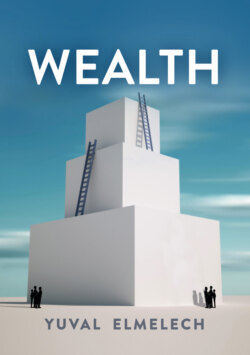Читать книгу Wealth - Yuval Elmelech - Страница 15
The three properties of wealth Wealth as private property or assets
ОглавлениеResearch on wealth as private property deals with the social and economic advantages associated with asset ownership. In industrialized countries, where property rights are protected, regulated, and often encouraged by the state (De Soto 2001), ownership of tangible assets—even those of modest value—is associated with a heightened sense of economic security, control over life, and personal efficacy and is an integral part of individual identity and social status (Sherraden 1991; Shapiro and Wolff 2001). The “social construction of future possibilities” (Sherraden 1991) summarizes the view that ownership of tangible assets incentivizes productive activity and investment in human capital and enhances the owner’s confidence about, and orientation toward, the future. Accordingly, owning assets extends the owner’s responsibility beyond the sphere of personal financial planning and into the domain of political accountability and citizenship.
The link between assets and well-being has inspired calls from scholars worldwide for a policy shift from traditional welfare programs to asset-building programs such as individual development accounts (IDAs), which encourage low-income families to save by matching their personal savings for specific goals (home purchase, business start-up, or higher education and training) (Sherraden 2005; Sherraden et al. 1995; Schreiner and Sherraden 2007). The primary assumption guiding these recommendations is that the long-term social, psychological, and economic benefits attributed to asset ownership, unlike those of income-based policies, can become a more effective and lasting remedy against poverty (Gamble and Prabhakar 2005).
Finally, the underlying conviction of the neoliberal free market policies associated with the “property-owning democracy” in Britain and the “ownership society” in the US—policies that promoted the dispersion of property ownership throughout the population—is that families should be given incentives for owning homes and should have more control over their retirement savings, their financial investments, their healthcare, and their children’s education (Williamson 2012; Shiller 2012). There are, however, reasons for considering a more cautious approach to property ownership than the adoption of blanket ownership policies. While the benefits of asset ownership have been documented, owning homes, businesses, and pension plans has been associated with greater financial vulnerability for some households. The “privatization of risk” (Hacker 2004)—that is, the general shifting of financial risks from society to households—results in greater financial debt and other economic burdens associated with financial loss and the repayment of loans (Hyman 2012; McCarthy 2017; Wray 2005).
